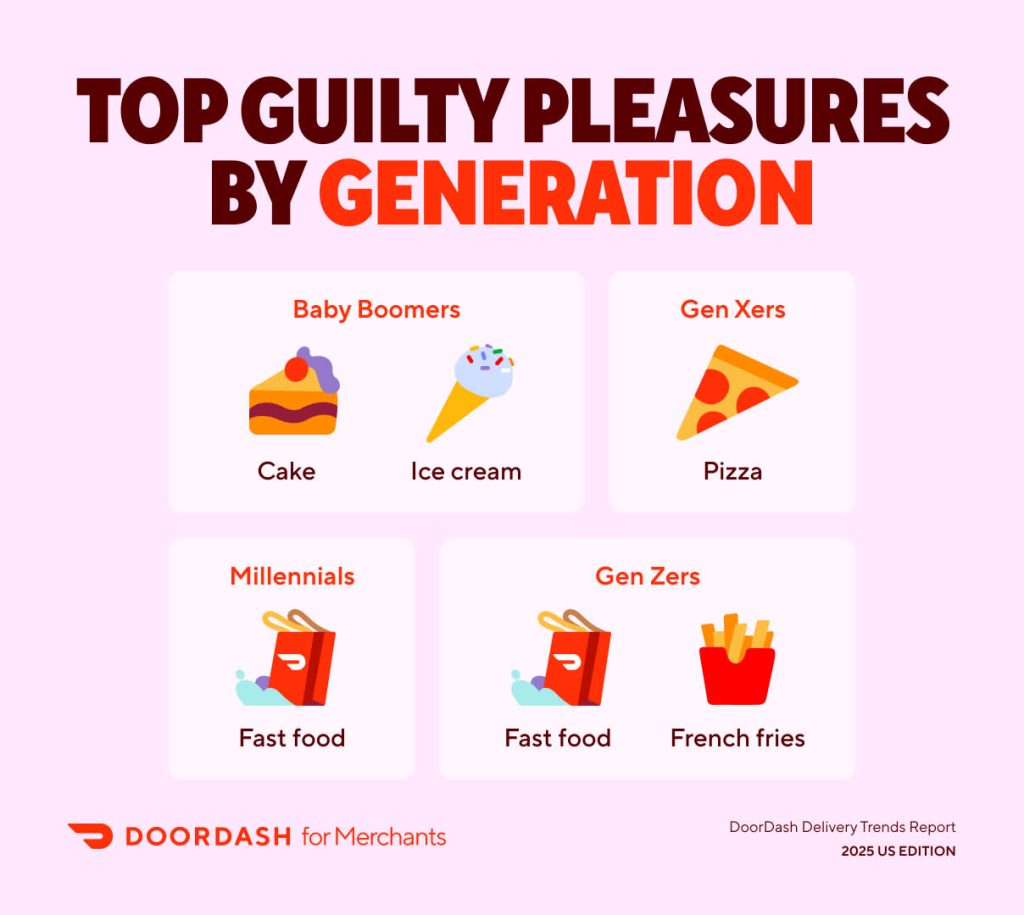Key consumer shifts in DoorDash’s 2025 delivery report
Consumer behavior in food and alcohol delivery is undergoing measurable change, driven by evolving technology, shifting demographics, and cultural relevance. The 2025 DoorDash report reveals that customers increasingly prioritize convenience, sustainability, and authenticity. From artificial intelligence shaping dining decisions to alcohol moderation among younger buyers, the landscape of online ordering is expanding in complexity.
AI’s role in dining recommendations is growing, but trust varies
DoorDash’s findings show rising comfort with AI-based restaurant suggestions, especially among Millennials. Nearly 40 percent of Gen Z and Millennial users said they feel comfortable with platforms recommending meals based on their ordering history. This suggests personalization is a powerful tool in helping customers navigate overwhelming choices.
Yet trust in AI falters when it involves food preparation. A notable gender split appears: over half of male respondents said they would try AI-prepared food, while fewer than 30 percent of women agreed. These insights point to the need for clearer messaging and consumer education around AI’s role in food services.
Social media now drives discovery and influences ordering behavior
Platforms such as TikTok, Instagram, and Facebook have become key sources for food discovery. According to the report, more than 60 percent of users said they tried a restaurant or dish after seeing it featured online. Short-form content, particularly viral food reviews, now exerts more influence than traditional advertising.
Restaurant operators who follow social trends and quickly adapt offerings are more likely to benefit from these bursts in visibility. However, longevity remains a challenge. To maintain momentum, many successful businesses use limited-edition menus or seasonal packaging tied to trending topics.
Sustainability is a differentiator
Sustainability has moved from niche concern to mainstream expectation, particularly for Gen Z and Millennial consumers. Over 70 percent of respondents said they are more likely to order from restaurants using locally sourced ingredients. Others cited biodegradable packaging, low-waste kitchens, and transparent sourcing as important factors.
For food businesses, this creates both pressure and opportunity. While adopting sustainable practices may carry upfront costs, it offers long-term returns in customer loyalty and brand strength. Restaurants not embracing these values risk being overlooked.

Demand for alcohol is evolving with health-conscious consumers
The growing popularity of the “sober curious” lifestyle is reshaping alcohol delivery habits. Younger consumers are increasingly choosing low- and no-alcohol options. DoorDash reported a noticeable rise in orders for nonalcoholic cocktails, functional sodas, and botanical beverages.
For restaurants and beverage brands, this shift offers a chance to innovate. Offering drink alternatives that emphasize health, flavor, and creativity meets the expectations of a younger, more mindful demographic.
The DoorDash 2025 report highlights four key shifts: AI is guiding decisions, but with reservations. Social media is a dominant influence in restaurant discovery. Sustainability is a baseline requirement. And the role of alcohol in delivery is being redefined.
Convenience remains critical, but it now operates in tandem with ethical values, tech-savviness, and cultural awareness. Restaurants that integrate AI thoughtfully, respond to social media moments with agility, and adopt visible sustainability practices are better positioned to thrive.
Sources:
DoorDash Blog: Online Ordering Habits
Statista: Online Food Delivery Market
Image credits:
DoorDash Blog
